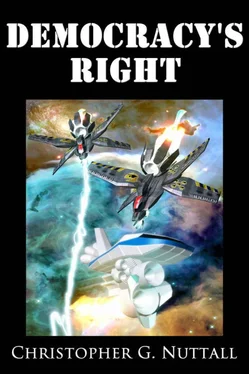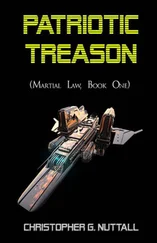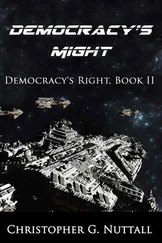“I believe so,” the sensor officer said. “They certainly launched a great many shuttles and lifepods, all of which are now heading down into the planet’s atmosphere.”
Colin nodded. Standard procedure was for lifepods to remain in space until they could be recovered, but he didn’t blame them for sending them into the atmosphere to land on the ground. In a combat zone, the odds of having them mistaken for weapons or mines and accidentally destroyed were just too high. Besides, it helped prove that the stations were definitely abandoned — unless, of course, they deliberately intended to trick him into carrying out an atrocity. Percival thought like that; he hoped — prayed — that the Roosevelt Family thought differently.
“Target the orbital stations,” he ordered. The tactical officer brought up the firing plan, the one that they had worked out just after Alpha Station had been destroyed. “Destroy them.”
“Aye, sir,” the tactical officer said. “I am launching missiles… now.”
Given enough time, Colin would have preferred to use energy weapons to destroy the orbital facilities, but time was ticking away. Besides, using missiles helped ensure that fewer chunks would survive the fall through the planet’s atmosphere to crash-land on the surface. He watched dispassionately as years of work and trillions of credits burned under his fire, wondering how long it would be before the Roosevelt Family could rebuild. They had probably had the planet’s facilities insured, but if he knew the Thousand Families, there would be caveats built into the agreements. And besides, if they attempted to pay out, it would probably wreck large parts of the economy.
“The targets have been destroyed,” the tactical officer reported, finally. “The enemy fortresses are increasing their fire.”
Colin was mildly impressed. Whoever had thought of that tactic was on the wrong side. He doubted that it was a tactic that would become commonplace, yet perhaps… it would certainly make hitting any planet harder. He shook his head in irritation. It wasn’t as if they had a monopoly on tactical innovations. If they were lucky, Admiral Percival would decide that the genius who had thought up the idea had been too clever and dispatch him to a remote mining colony… no, that wouldn’t happen. Whoever had thought of it would be working directly for the Roosevelt Family. Percival would only have limited authority over him.
“Take us up,” he ordered. They’d dallied too long already. “Prepare to flicker us out as soon as we reach a safe distance.”
Unsurprisingly, the incoming fire doubled as they pulled away from the planet, the fortresses realising that their prey was escaping and trying to cripple or destroy a superdreadnaught before they could escape. Colin didn’t bother to return fire. At such extreme range, it was unlikely that they would hit any of the smaller starships, while the fortresses might as well have been invincible. It would just be a waste of missiles.
He pulled up the planetary data again and shook his head. Why was the planet so important?
It made no sense. The survey data didn’t suggest that the planet had played host to intelligent life before the Empire had stumbled over it and given the settlement rights to the Roosevelt Family. Studying alien tech made sense, yet an alien race advanced enough to be worth the effort of studying it would be clearly noticeable from orbit, even if it had died out centuries ago. And besides, the survey data would have noticed the alien settlement and an Imperial Navy team would have taken over the planet. Was it a crashed alien ship, perhaps? Also possible, yet why wouldn’t they take it into the Empire, to somewhere more secure?
And what else was worth the amount of resources they’d lavished on the world?
“We have reached minimum safe distance, Admiral,” the helmsman said. “The flicker drives are powering up now.”
Colin took one final look at the mysterious planet, vowing to come back one day and ferret out its secrets. If he’d kept Stacy Roosevelt as a prisoner, perhaps he could have asked her… he shook his head, annoyed at himself. There was no point in questioning his own decisions, not now. What was done was done.
“Take us out of here,” he ordered. The other timer had reached zero. Percival’s reinforcements could be expected at any moment. It was tempting to spend time wrecking the cloudscoops and mining facilities, but it wouldn’t assist the cause. “It’s time to take our leave.”
“It’s the flicker drive node, My Lady,” Accrington said. “I’m afraid that it has finally given up the ghost.”
Lady Hannelore Ellicott-Chatham scowled. The Misfit was one of three freighters, her own personal property, that she’d assigned to the mining project at Tyler’s Star. Unfortunately, the ship was also older than she was and on its last legs. The only reason it had been so cheap was because the owner had thought he was selling it for scrap.
“So the freighter cannot jump outside the system,” Hannelore said, carefully. She had a fairly comprehensive education in mining technology — her mother and father had taught her never to depend on outsiders to run crucial family businesses — but she couldn’t have put a flicker drive together even if someone had given her the parts and detailed instructions. “Can we still use it inside the system?”
“Oh, sure,” Accrington assured her. “The hull is as sound as it was when we bought it” — Hannelore snorted; that hadn’t been very sound — “and there’s nothing wrong with the life support. It’s just the flicker drive.”
“Very well,” Hannelore said, straightening up. “Put the ship on internal system duties until it finally gives up the ghost or we can scrape up the funds to have the flicker drive repaired.”
“It would probably be cheaper in the long run to buy a whole new ship,” her chief engineer said, as he wiped his hands on a grubby towel. “The older ship isn’t going to last forever.”
Hannelore contemplated the loss of the Misfit as she strode through the freighter’s cramped passageways and out into the asteroid habitat she’d converted into a base of operations. Calling it a habitat was a bit of a stretch, but she didn’t care about rocky walls, dodgy life support and unidentified smells in the atmosphere. It was her home and would remain her home until she returned to Earth in triumph, or finally gave up and joined the Moochers, the army of disinherited heirs who lurked at the edge of the Thousand Families, more than commoners but less than aristocrats. She couldn’t imagine a worse fate and her natural optimism kept her going, yet it seemed as if the universe itself was conspiring against her. All her hopes and dreams seemed to be on the verge of failure.
Tyler’s Star had been judged worthless when the Imperial Navy’s survey service had passed through the red dwarf system, pausing long enough to catalogue the small handful of asteroids and the single small gas giant before moving on to more prosperous systems. Hannelore — searching for a place to try to build a fortune — had other ideas. The system had two great advantages; it had no local population and a suitable source of power, the star itself. And, if the economic predictions for Sector 117 bore out, a person who just happened to control a cloudscoop and an asteroid mining facility would be in a position to carve out a niche for herself. Hannelore wanted that very much.
She’d been the product of an arranged marriage between two families, both small families who had dreams of merging and becoming a greater one. They’d ordered two of their youngsters to marry and produce a heir, but their dreams had shattered long before Hannelore had reached her majority. Powerful factions within both families, fearing that they would be disinherited in favour of the newcomer, had torn the alliance apart, leaving Hannelore adrift. Her parents might have been divorced, yet they’d always been kind to her, but that kindness had limits. Hannelore was that unfortunate person who could not be denied a place in the family, but was also an embarrassment, a reminder of plans that had simply never come to fruition. She had grown up among the Thousand Families and rapidly learned to hate most of the younger members, both the ones who pretended sympathy for her isolation and the ones who acted as if she was tainted, as if what had happened to her was a deadly disease that could rub off on them. Hannelore had sought an escape and found one, more or less by accident. It had required almost all of her trust fund from her family, but she’d gone ahead with it anyway. A successful mining project would give her the leverage to rejoin her family on her terms, or allow her the independence she had always craved.
Читать дальше












